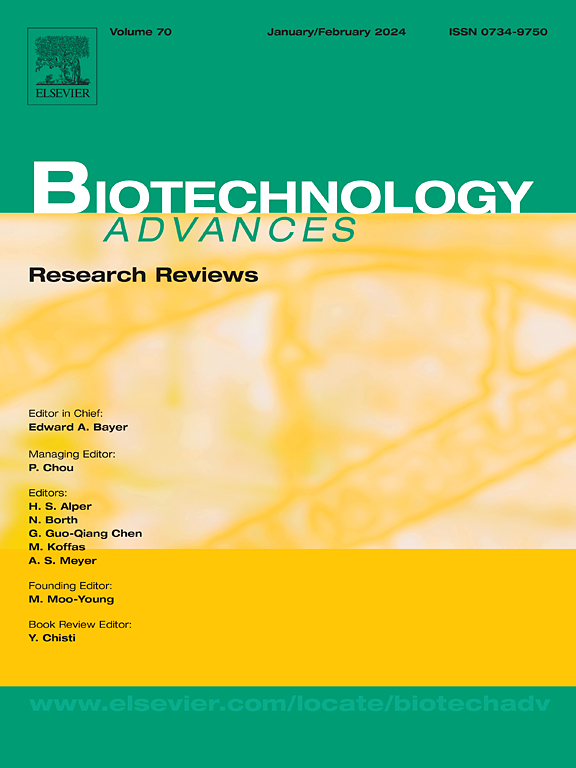基于可电离脂质纳米颗粒和阳离子聚合物载体的siRNA靶向递送系统。
IF 12.1
1区 工程技术
Q1 BIOTECHNOLOGY & APPLIED MICROBIOLOGY
引用次数: 0
摘要
作为一种新兴的治疗工具,小干扰RNA (siRNA)具有通过序列特异性基因沉默下调几乎所有人类mrna的能力。许多研究已经证明了siRNA在治疗多种疾病方面的巨大潜力。随着各种递送系统和化学修饰的发现和发展,到2024年,已有6种基于sirna的药物获得批准。基于sirna的治疗方法的使用极大地推动了对抗一系列以前无法治愈的疾病的努力,并在快速发展,特别是在有效的靶向递送系统的帮助下。尽管遇到了细胞外和细胞内的一些挑战,siRNA的传递效率已经逐渐提高。目前,旨在提高效力和降低毒性的靶向策略在siRNA的可药物性中起着至关重要的作用。本文综述了用于siRNA靶向递送的可电离脂质纳米颗粒(LNPs)和阳离子聚合物(CP)载体的最新进展。基于各种类型的靶向修饰,我们主要描述了受体配体、肽、抗体、适体和氨基酸修饰的递送系统。最后,我们讨论了基于电离LNPs和CPs载体的siRNA递送系统的挑战和机遇。本文章由计算机程序翻译,如有差异,请以英文原文为准。
Targeted delivery systems of siRNA based on ionizable lipid nanoparticles and cationic polymer vectors
As an emerging therapeutic tool, small interfering RNA (siRNA) had the capability to down-regulate nearly all human mRNAs via sequence-specific gene silencing. Numerous studies have demonstrated the substantial potential of siRNA in the treatment of broad classes of diseases. With the discovery and development of various delivery systems and chemical modifications, six siRNA-based drugs have been approved by 2024. The utilization of siRNA-based therapeutics has significantly propelled efforts to combat a wide array of previously incurable diseases and advanced at a rapid pace, particularly with the help of potent targeted delivery systems. Despite encountering several extracellular and intracellular challenges, the efficiency of siRNA delivery has been gradually enhanced. Currently, targeted strategies aimed at improving potency and reducing toxicity played a crucial role in the druggability of siRNA. This review focused on recent advancements on ionizable lipid nanoparticles (LNPs) and cationic polymer (CP) vectors applied for targeted siRNA delivery. Based on various types of targeted modifications, we primarily described delivery systems modified with receptor ligands, peptides, antibodies, aptamers and amino acids. Finally, we discussed the challenges and opportunities associated with siRNA delivery systems based on ionizable LNPs and CPs vectors.
求助全文
通过发布文献求助,成功后即可免费获取论文全文。
去求助
来源期刊

Biotechnology advances
工程技术-生物工程与应用微生物
CiteScore
25.50
自引率
2.50%
发文量
167
审稿时长
37 days
期刊介绍:
Biotechnology Advances is a comprehensive review journal that covers all aspects of the multidisciplinary field of biotechnology. The journal focuses on biotechnology principles and their applications in various industries, agriculture, medicine, environmental concerns, and regulatory issues. It publishes authoritative articles that highlight current developments and future trends in the field of biotechnology. The journal invites submissions of manuscripts that are relevant and appropriate. It targets a wide audience, including scientists, engineers, students, instructors, researchers, practitioners, managers, governments, and other stakeholders in the field. Additionally, special issues are published based on selected presentations from recent relevant conferences in collaboration with the organizations hosting those conferences.
 求助内容:
求助内容: 应助结果提醒方式:
应助结果提醒方式:


